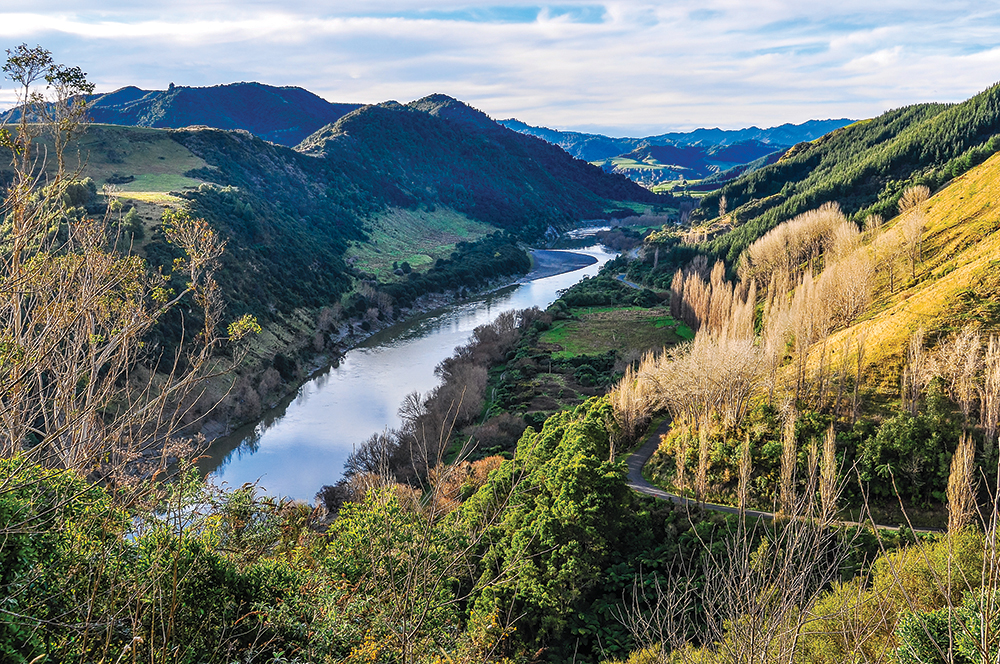November 2020 | Volume 22 No. 1
Cover Story
The Sovereign State Feels the Heat
Dr Daniel Matthews of the Faculty of Law is an admirer of English philosopher Thomas Hobbes, who defined sovereignty as it is commonly understood: escaping nature under the security and protection of the state through a social contract. Hobbes was writing 400 years ago and today, the cracks are showing.
“Hobbes was extraordinarily creative in rethinking how we define political authority,” Dr Matthews said. “But even though sovereignty is back big time, with Brexit and the rise of populism being examples, I see that as a real dead end for dealing with the challenges of climate change.
“Climate change does not respect state borders and many of its effects are non-anthropocentric, impacting on a range of non-human forces and relations described by geology and ecology. Modern politics is really bad at being sensitive to these forces.”
Dr Matthews has been tracking these shortfalls as a scholar of the history and theory of sovereignty and sees problems in all three components that define sovereignty: territorial, populational and institutional.
In terms of territory, climate change is altering the geophysical environment, including boundaries, which had largely been considered immobile and fixed. In Canada, for example, melting ice has transformed sections of the Northwest Passage from land into sea, raising questions over whether it is still part of the Canadian landmass or could now be considered open ocean. “These kinds of challenges are only going to become more significant in the coming years,” Dr Matthews said.
Non-human actors ignored
The focus on humans as the only population considered worthy of political attention in sovereign states also raises concerns. “It’s becoming clear that the security of a nation depends on all sorts of non-human animals which are constitutively ignored in the classic definition of sovereignty, such as the biodiversity of insects for the pollination of crops, animals that are farmed for protein and so forth,” he said.
Institutionally, instruments such as parliaments and courts have been designed to consider human rights and interests, not those of nature. Some places have experimented with addressing this issue – in Ecuador, for instance, the constitution recognises the Rights of Nature and in New Zealand the Whanganui River has recently been granted legal personality. Other institutional experiments include cities linking up through global networks to develop and implement climate policies. But it is still far from adequate.
“Sadly, we are only at the beginning of this process. We need a radical re-thinking of some of the things we take for granted,” he said. “The novelist Amitav Ghosh has said that climate change is more a crisis of the imagination than a crisis of policymaking. We need new ways to imagine the meaning and scope of the political.”

The Whanganui River in New Zealand has been granted legal personality, meaning it has been awarded the same legal rights as a living entity.
Maps and other limitations
Dr Matthews is contributing to that discussion with a forthcoming book, The Aesthetics of Sovereignty in the Anthropocene, that looks at how maps, rituals, symbols, fictions, narratives and other aesthetic elements are mobilised to legitimise a state and how these practices interfere with our ability to address the unprecedented and disturbing planetary changes wrought by human activity over the past 200 years.
“The aesthetic dimension of sovereignty constructs how sovereignty and our political identities appear in the world and allow us to imagine the world in a particular way; but they also have limitations,” he said.
“Maps, for example, are wonderful devices for doing all sorts of things, particularly in representing the scope of territorial authority, but they only depict empty, homogenous space. They are not sensitive to all sorts of forces that are increasingly relevant in the current moment, such as biodiversity, risks associated with rising sea levels, or the nature and composition of the soil. Maps, and the cartographic imaginary they engender, inure us to the changing geophysical environment and the non-human actors we depend on for our survival. And they limit our ability to think creatively about these challenges.”
Radical changes needed
Getting people to see the world differently, both in the visual and contemplative sense, will not be easy. The COVID-19 pandemic offers a glimpse of the challenges. “We’ve seen a reassertion of national borders, concentration of power in the hands of the executive, greater emphasis on who gets the privilege of citizenship and who doesn’t. I fear we will see repeats of this in future climatic crises,” he said.
Dr Matthews hearkens back to Hobbes, who was also exploring how politics could be reorganised in a changing world. “This idea that we have to deny our attachments to the natural world in order to create a distinct political sphere is precisely what needs to be reversed. But the way things are going at the moment doesn’t make me massively hopeful,” he said.
“Radical changes need to take place. It can’t be business as usual. Exactly how these changes will be instituted, no one knows. In my own work, I’m hoping to point out the limitations of the existing coordinates that define modern sovereignty and encourage critical and creative thinking about the changing nature of political authority in the context of climatic transformation.”
The Aesthetics of Sovereignty in the Anthropocene will be published by Edinburgh University Press in 2021.
This idea that we have to deny our attachments to the natural world in order to create a distinct political sphere is precisely what needs to be reversed.

DR DANIEL MATTHEWS

